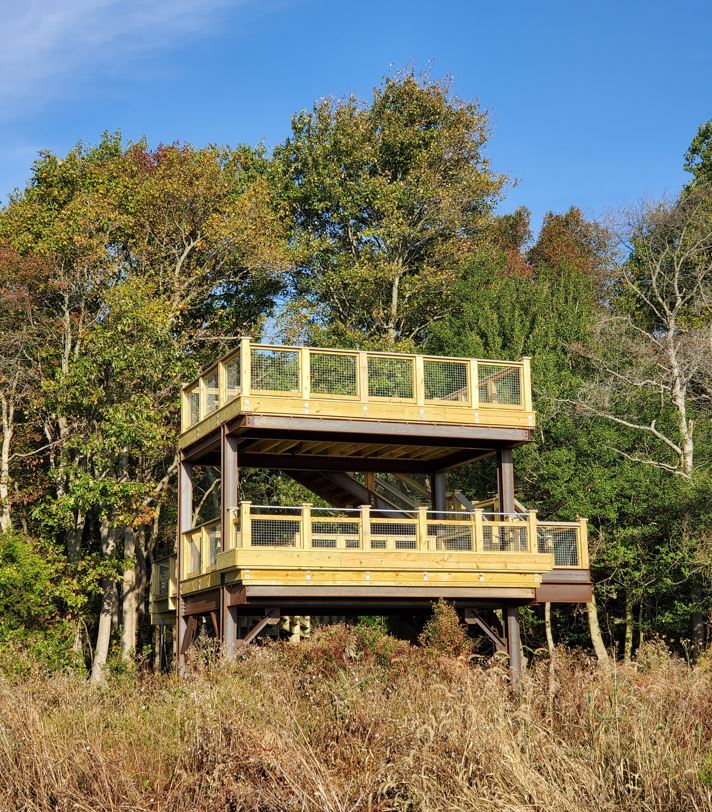The Department of Natural Resources and Environmental Control (DNREC) has a range of community resources for Delawareans, including boards and commissions, committees and ombudsmen.
Programs are also in place to assist residents with home weatherization, transitioning to clean energy and access to Delaware’s state parks.
DNREC ombudsmen serve as liaisons between the department and community and business constituents throughout the state. DNREC ombudsmen work to increase the flow of information between communities and the department, increase community participation and facilitate dialogue among all stakeholders during the decision-making process.
The Community Ombudsman helps communities identify and understand environmental problems and helps the department understand the needs of communities.
DNREC provides free assistance to all new and existing small businesses in Delaware through the Small Business Ombudsman and the Small Business Environmental Assistance Program. They help businesses understand the requirements of Delaware’s environmental programs and help find ways to comply with them in the easiest and most effective ways.
The Department of Natural Resources and Environmental Control works with several boards, councils, committees and task forces to help it stay in touch with the public and the regulated community and ensure that Departmental policies and regulations serve the needs of all constituents.
Of particular interest to the Environmental Justice community are those that provide an appeals process for major decisions of the DNREC Secretary and the committee that helps oversee cleanup of polluted sites.
The Delaware Environmental Appeals Board (EAB) hears appeals of decisions made by the Secretary of the Department of Natural Resources and Environmental Control. The Board has the authority to affirm, modify or reverse a decision of the Secretary.
The EAB webpage includes information on filing an appeal, public notices concerning appeal hearings and a list of current appeals.
The Delaware Coastal Zone Industrial Control Board hears appeals of decisions made by the Secretary of the Department of Natural Resources and Environmental Control (DNREC) under the Delaware Coastal Zone Act program. The Coastal Zone Act (7 Del.C. Chapter 70) regulates new and existing manufacturing, heavy industry, and bulk product transfer activities in Delaware’s coastal zone
The Hazardous Substance Cleanup Act (HSCA) Advisory Committee advises the department on rules, policies, and procedures relating to the cleanup and re-use of hazardous waste sites.
The regulations that govern the Department of Natural Resources and Environmental Control (DNREC) are published by the Office of the Registrar of Regulations as part of the Delaware Administrative Code.
The DNREC regulations webpage lists regulations by Division and shows regulations currently under development.
The Delaware Brownfields Development Program encourages the building of affordable housing on cleaned-up sites, offering a significantly higher level of financial assistance for non-profits as opposed to private entities.
DNREC has state funds to help property owners remove long-standing piles of scrap tires. State assistance may also be available to help counties, municipalities or community groups remove illegally dumped tires.
DNREC offers financing options and assistance to the owners or operators of underground and aboveground storage tank systems. This includes residential fuel underground storage tank systems and abandoned underground storage tank systems.
The Septic Rehabilitation Loan Program provides low-interest financing to replace failing septic systems and cesspools with on-site wastewater disposal systems. The program also provides funding for new septic construction and costs associated with connecting to central sewer systems.
DNREC’s Weatherization Assistance Program is a free program that helps homeowners and renters cut their energy bills by weatherproofing and improving the energy efficiency of their homes.
The Green Energy Program provides funds and incentives to promote the use of renewable energy in Delaware. It includes several different types of green energy funding programs from the state’s major electric utilities.
The Energy Efficiency Advisory Council develops statewide programs to increase energy efficiency, reduce energy usage and lower consumer energy costs. The Council’s Low-Income Energy Efficiency Subcommittee provides feedback and guidance on the development and implementation of cost-effective program offerings.
The Resilient Community Partnership program provides technical assistance and potential funding to plan for and reduce the impacts of coastal hazards related to flooding from sea level rise, coastal storms and climate change through the development of planning strategies at the local level.

Delaware’s 17 State Parks offer a variety of outdoor activities – from sandy beaches of the Atlantic Ocean to the rolling hills of the Brandywine Valley.
Delaware residents can check out free daily state park passes through the Delaware Libraries Museum Pass program.
DNREC and the Department of Health and Social Services provide annual state park passes for $10 to those receiving state assistance though the Annual Pass Assistance program.
Delaware residents who hold an America the Beautiful Access Pass from the federal government are exempted from paying seasonal or daily entrance fees to Delaware State Parks. The US Dept. of the Interior makes America the Beautiful Access passes available to those who have been medically determined to be blind or permanently disabled and, as a result, are eligible to receive benefits under federal law.
The Delaware State Parks Youth Conservation Corps provides high quality summer jobs and environmental opportunities for young people aged 16 to 21.
Delaware State Parks school programs offer students from preschool through high school hands-on experiences that compliment classroom learning.
DNREC administers the Outdoor Recreation, Parks and Trails (ORPT) grant program to help towns and counties meet the recreational needs of their residents. The matching grant program helps local governments buy land for parks and conservation areas close to where people live. Funds are also available to build pickleball courts, splash pads, inclusive playgrounds, ballfields, trails, picnic pavilions and other active outdoor recreation facilities and amenities.

The department offers a range of outdoor recreation programming throughout the state including aquatic education, Youth Fishing Programs, mosquito control, and improving fishing access for underserved communities.
The Annual Fishing Guide contains fishing access areas and fish consumption health advisories.
The DNREC Division of Fish and Wildlife offers free fishing lessons, aquatic adventures and explorations of the Delaware Bay for children and young teens.
DNREC manages 19 public wildlife areas that provide habitat for a variety of wildlife and provide wildlife watching, hunting and other outdoor recreational opportunities for Delaware residents and visitors.
The Division of Small Business Office of Supplier Diversity, in the Department of State, offers a single combined application for diverse and small business certification.
A Diverse Business is one where 51% or more of the ownership and control of the daily operations of the business is made up of minorities, women, veterans, service disabled veterans, or individuals with disabilities. If a company is for-profit and 51% or more owned, controlled and actively manage by U.S. Citizens or Permanent Residents in any of the following groups, it may be an eligible Diverse Business:
Related Topics: community, environmental justice, equal access, resources